Filter by

Getting others to do things: a pragmatic typology of recruitments
Getting others to do things is a central part of social interaction in any human society. Language is our main tool for this purpose. In this book, we show that sequences of interaction in which one person’s behaviour solicits or occasions another’s assistance or collaboration share common structural properties that provide a basis for the systematic comparison of this domain across languag…
- Edition
- -
- ISBN/ISSN
- 9783961102785
- Collation
- vi, 429 p.: ill.
- Series Title
- -
- Call Number
- 410 GET g
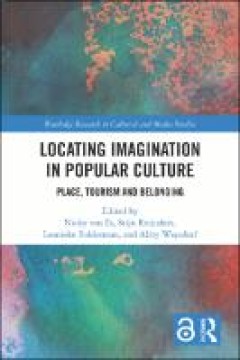
Locating imagination in popular culture : place, tourism and belonging
Locating Imagination in Popular Culture offers a multi-disciplinary account of the ways in which popular culture, tourism and notions of place intertwine in an environment characterized by ongoing processes of globalization, digitization and an increasingly ubiquitous nature of multi-media. Centred around the concept of imagination, the authors demonstrate how popular culture and media are beco…
- Edition
- -
- ISBN/ISSN
- 9781000223835
- Collation
- XIV, 319 p.
- Series Title
- Routledge Research in Cultural and Media Studies,
- Call Number
- 306 LOC l
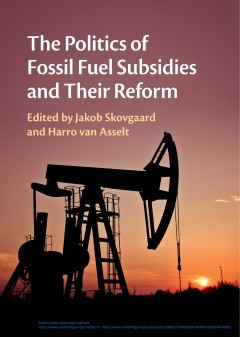
The politics of fossil fuel subsidies and their reform
Fossil fuel subsidies strain public budgets, and contribute to climate change and local air pollution. Despite widespread agreement among experts about the benefits of reforming fossil fuel subsidies, repeated international commitments to eliminate them, and valiant efforts by some countries to reform them, they continue to persist. This book helps explain this conundrum, by exploring the polit…
- Edition
- -
- ISBN/ISSN
- 9781108241946
- Collation
- xxiii, 324p. : ill.
- Series Title
- -
- Call Number
- 338.23 POL p
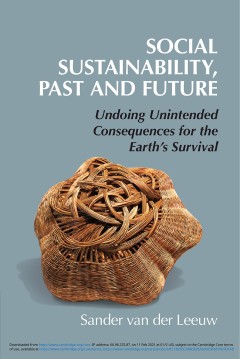
Social sustainability, past and future : undoing unintended consequences for …
In this book, Sander Van der Leeuw examines how the modern world has been caught in a socio-economic dynamic that has generated the conundrum of sustainability. Combining the methods of social science and complex systems science, he explores how western, developed nations have globalized their world view and how that view has led to the sustainability challenges we are now facing. Its central t…
- Edition
- -
- ISBN/ISSN
- 9781108595247
- Collation
- xvi, 516p. : ill.
- Series Title
- -
- Call Number
- 304.2 VAN s
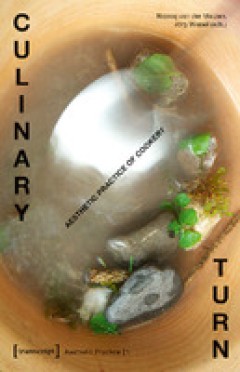
Culinary turn: aesthetic practice of cookery
Kitchen, cooking, nutrition, and eating have become omnipresent cultural topics. They stand at the center of design, gastronomy, nutrition science, and agriculture. Artists have appropriated cooking as an aesthetic practice – in turn, cooks are adapting the staging practices that go with an artistic self-image. This development is accompanied by a philosophy of cooking as a speculative cultur…
- Edition
- -
- ISBN/ISSN
- 9783839430316
- Collation
- 324 p. : ill. (chiefly color) ; 24 cm.
- Series Title
- Aesthetic practice ; volume 1
- Call Number
- 641.013 CUL c
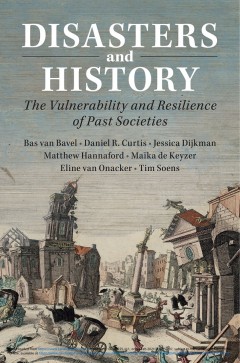
Disasters and history : the vulnerability and resilience of past societies
Disasters and History offers the first comprehensive historical overview of hazards and disasters. Drawing on a range of case studies, including the Black Death, the Lisbon earthquake of 1755 and the Fukushima disaster, the authors examine how societies dealt with shocks and hazards and their potentially disastrous outcomes. They reveal the ways in which the consequences and outcomes of these d…
- Edition
- -
- ISBN/ISSN
- 9781108569743
- Collation
- x, 231p. : ill.
- Series Title
- -
- Call Number
- 363.3409 DIS d
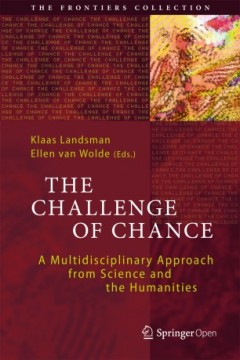
The challenge of chance : a multidisciplinary approach from science and the h…
This book presents a multidisciplinary perspective on chance, with contributions from distinguished researchers in the areas of biology, cognitive neuroscience, economics, genetics, general history, law, linguistics, logic, mathematical physics, statistics, theology and philosophy. The individual chapters are bound together by a general introduction followed by an opening chapter that surveys 2…
- Edition
- -
- ISBN/ISSN
- 9783319263007
- Collation
- vii, 276p. : ill.
- Series Title
- -
- Call Number
- 123.3 KLA t

Netherlands Indies and the Great War 1914-1918
World War I had just broken out, but colonial authorities in the Netherlands Indies heaved a sigh of relief: The colonial export sector had not collapsed and war offered new economic prospects; representatives from the Islamic nationalist movement had prayed for God to bless the Netherlands but had not seized upon the occasion to incite unrest. Furthermore, the colonial government, impressed by…
- Edition
- -
- ISBN/ISSN
- 9789067183086 (pbk.)
- Collation
- xiii, 674 p. : ill. ; 24 cm.
- Series Title
- Verhandelingen van het Koninklijk Instituut voor Taal-, Land- en Volkenkunde ; 254
- Call Number
- 959.8022 VAN n
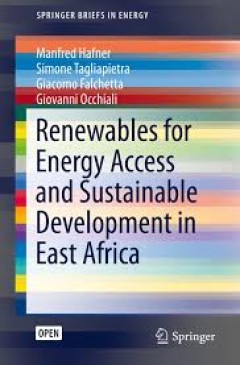
Renewables for energy access and sustainable development in east Africa
This short open access book investigates the role of renewable energy in East Africa to provide policy-relevant inputs for the achievement of a cost-effective electrification process in the region. For each country, the authors review the current situation in the domestic power sector, adopt a GIS-based approach to plot renewable energy resources potential, and review currently planned projects…
- Edition
- -
- ISBN/ISSN
- 9783030117351
- Collation
- 149 hlm
- Series Title
- -
- Call Number
- 330 HAF r

Electronic Iran - the cultural politics of an online evolution
Electronic Iran introduces the concept of the Iranian Internet, a framework that captures interlinked, transnational networks of virtual and offline spaces. Taking her cues from early Internet ethnographies that stress the importance of treating the Internet as both a site and product of cultural production, accounts in media studies that highlight the continuities between old and new media, an…
- Edition
- -
- ISBN/ISSN
- 9780813561943
- Collation
- 168 p.
- Series Title
- -
- Call Number
- 006.754 AKH e
 Computer Science, Information & General Works
Computer Science, Information & General Works  Philosophy & Psychology
Philosophy & Psychology  Religion
Religion  Social Sciences
Social Sciences  Language
Language  Pure Science
Pure Science  Applied Sciences
Applied Sciences  Art & Recreation
Art & Recreation  Literature
Literature  History & Geography
History & Geography